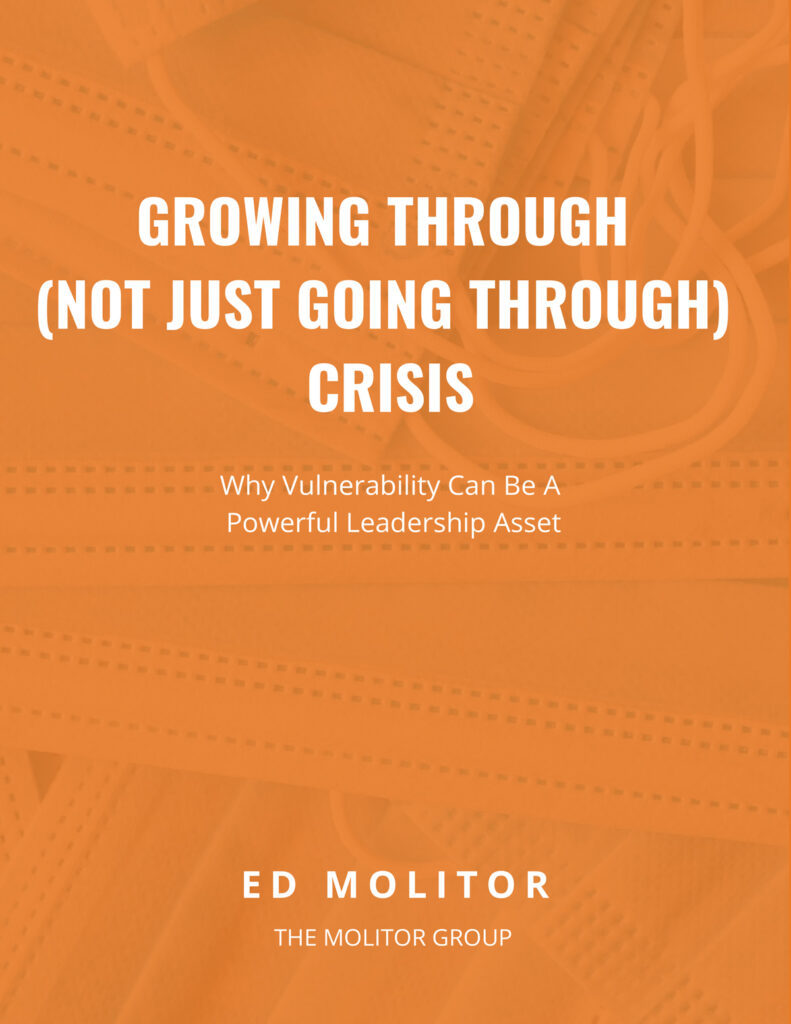
In the last 26 years, Ed Molitor has developed his leadership skills in athletics and business. From working as an NCAA Basketball coach at Texas A&M to becoming the Vice President of a national recruiting firm, Ed has taught countless athletes, coaches, and business leaders how to THINK, ACT, and EXECUTE at an elite level. As a result, Ed has a unique set of skills to deliver leaders across the country a purposeful, positive, energetic, and refreshing experience to unlock their true potential. In 2016, Ed launched his company, The Molitor Group, to reach and add value to a larger sphere of ambitious individuals and help them achieve their goals every day. Through The Molitor Group, Ed has guided all leaders to achieve success. From entrepreneurs and executives to teams and companies, The Molitor Group empowers individuals and groups to achieve at the next level. Through Leadership Performance training, coaching, and speaking, Ed's goal is to supply people and organizations with the necessary tools to move forward from where they are now to where they want to be.
Psychological Safety (1:22)
Success in business and athletics is determined by consistently performing at a high level. When they wake up, leaders and coaches operate under extremely high pressure to perform, produce, and keep everyone depending on them happy. Every day, they have to figure out a way to be the voice and face that everyone on their team needs to see and hear. For some folks, it is a hard reality. This could be because they lack the skill set, confidence, or experience to meet the standard. When we feel that pressure, we can't project that onto our team members. As leaders, we have to find a way every day to translate the expectations and strategies into process and execution. One of the core ways to do this is to focus on value and psychological safety. Psychological safety is being able to show and employ oneself without fear of negative consequences for one's image, status, or career. It knows the team is safe from interpersonal risk-taking, and members feel accepted and respected. They can challenge the status quo without fear, producing a team-driven toward innovation.Building Psychological Safety (6:02)
Psychological safety starts with building the right mindset and behaviors. The key is to establish a positive climate where teammates value one another's contributions, care about each others' wellbeing, and input how the team carries out the work. As a team leader, you can catalyze by empowering other leaders in your organization and fellow teammates by reinforcing the behaviors expected by the rest of the team. As coaches, we have to remember that there are eyes on us at all times, and people who look up to us will see how we respond in certain situations, especially in conflict. They need to know they can trust us in times of adversary, and we're not going to turn our backs on our values the moment a situation turns heated. When you can create psychological safety, they know that they can trust you, even in moments of adversary, and you'll have their back.Take Action (13:40)
The best recruiters are the people you have right now. Psychological safety drives trust and trust drives everything else, including energizing your recruiting and extending your retainer. If people are happy, feel valued, and are doing work with value, they'll stay with you longer than anyone else. Psychological safety isn't the same as being soft. We model the leadership and values of our leaders, so your team is going to work smarter, harder, and as a more cohesive unit because they feel safe. Not to mention, they're going to have a lot more fun. When you stay committed to psychological safety, even in times of adversary or growth, it becomes a way of life.Additional resources:
- Email: ed@themolitorgroup.com


